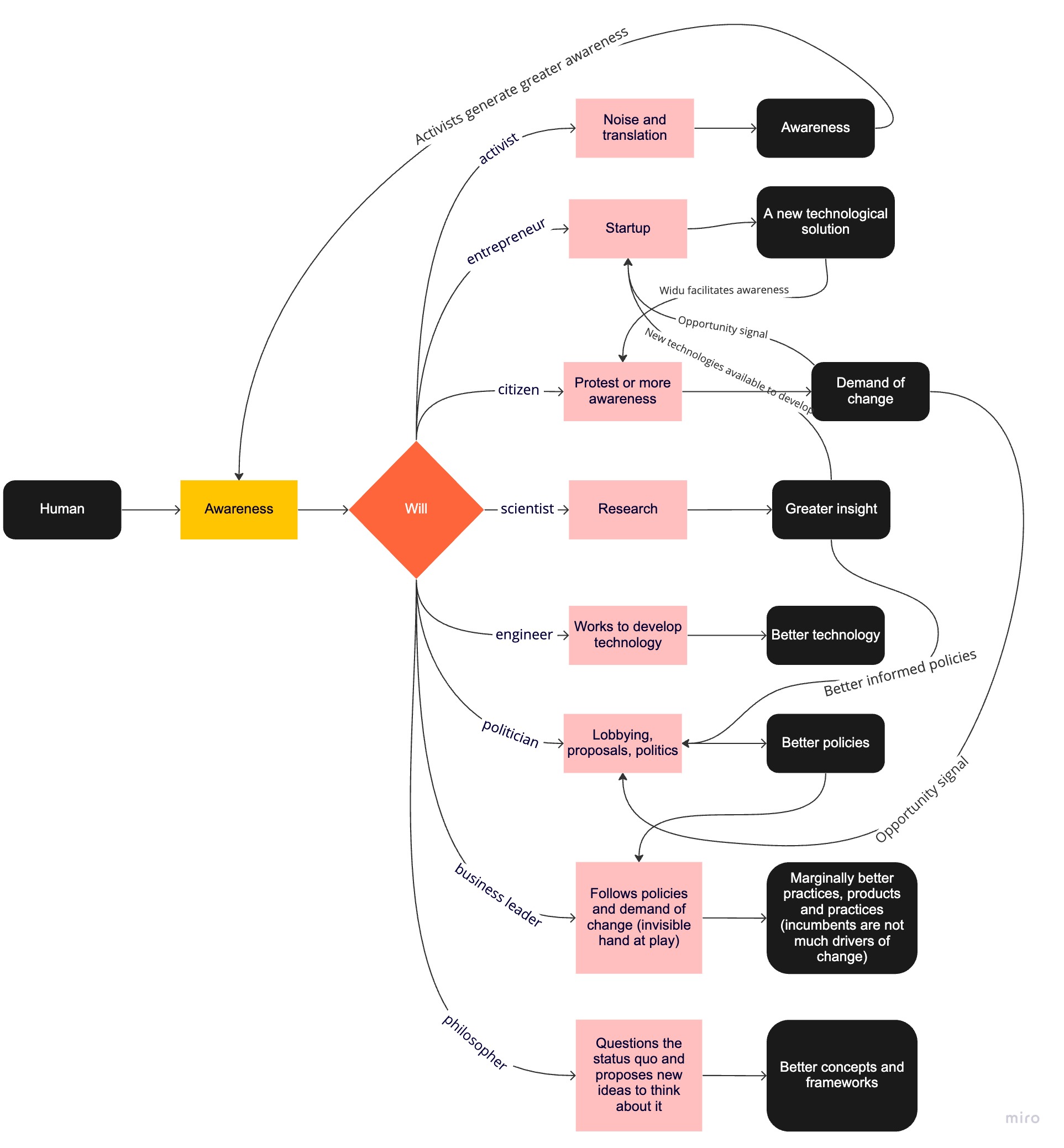Once you start generating awareness as a human of how bad things are, the risks we face and the things that should change, it's hard to understand how you can play a role.
I personally struggled for a while at some stage in my life with this and through research and experience I've come to understand more of the landscape of how change is enabled. I decided to create this diagram which I think can be useful to keep in mind as a mental model and to share it with people who might struggle to grasp how their current role in society can influence change.

The basic premise is that we all start as humans, as we gain awareness of the status quo and if everything goes well we generate will to effect change. The first level we hit is that of a citizen and a citizen really has a small individual lever but can en-masse generate "demand of change" which in turn shapes policies and the technologies we build.
I consider lifestyle choices, consumer choices, voting, raising your voice, supporting a cause, etc all forms of a similar mechanism of protest that a citizen can make use of. A citizen can then become an activist, engineer, entrepreneur, scientist, politician, business leader or philosopher.
Each of these professions has a particular role in society and a particular lever.
An activist generates awareness through creating noise around a certain issue or translating that issue for a more general public. I consider in the context of change an artist or a teacher to be an activist.
An entrepreneur creates a startup which in turn develops and distributes new technologies.
A scientist does research which leads to greater insight and in turn content to translate into awareness, better policies or technologies.
A politician can lobby, make proposals and do politics which can lead to better policies.
A business leader has less of a lever, because in general they're already part of the establishment and have an innovator's dilemma. They're slow but can their actions can marginally lead to better practices, products and services.
A philosopher questions the status quo and our current mindset and proposes new ways of thinking about it which can in turn lead to better frameworks and concepts.

Great post, thanks for sharing JoseCyC. It would be interesting to go one step backward to see how the awareness stage influences the path taken by the person.
In my opinion, all of those who influence the awareness stage (teachers, parents, etc) have the opportunity of guiding the person toward a path of effective change. It would be interesting to share this as a tool to invite them to show people (especially while they are still studying) toward a path where they can make a difference.
I’m skeptical that a business leader, on average, is more stuck in the status quo than a politician - especially given the massive influence business has in policy. That said, great post!